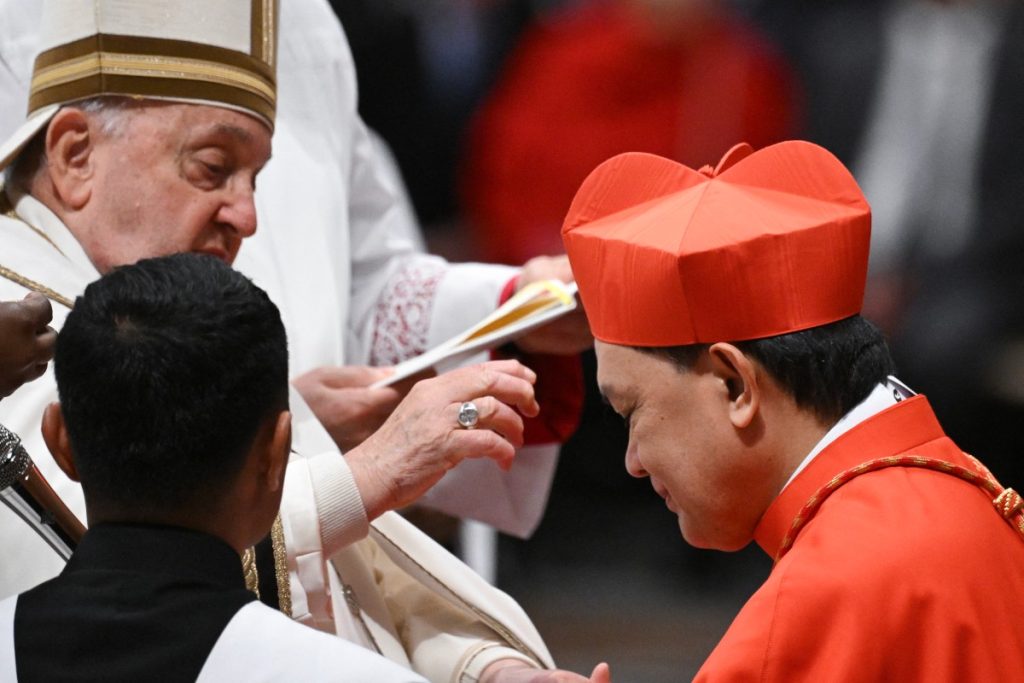Pope Francis created 21 new cardinals from five continents on Saturday, including bishops from Algiers, Tehran, Tokyo and Abidjan — many of whom may one day help choose his successor.
In the tenth such consistory since he became pope in 2013, Francis, 87, greeted the assembled cardinals-to-be with a large bruise on his right jaw, which a Vatican source said was caused after he fell from his bed.
“The Lord is looking to you, who come from different backgrounds and cultures, and represent the catholicity of the Church,” the pope told the group inside St. Peter’s Basilica.
Throughout the ceremony, he displayed signs of declining health, appearing short of breath sometimes. Nonetheless, he smiled and engaged in light conversation with some of the cardinals, showcasing his resilient spirit.
While the Vatican refrained from providing an official statement regarding the pope’s bruise and did not offer additional details when requested, the atmosphere in the basilica remained one of hope and solidarity. “He is calling you to be witnesses of fraternity, artisans of communion, and builders of unity,” Francis urged, outlining the responsibilities that accompany their newly bestowed titles.

Being the first pope from Latin America, Francis has consistently advocated for a more inclusive Church that values the contributions of its faithful, even those far removed from the Vatican’s reach. This year’s cohort of new cardinals includes five bishops from Latin America—specifically from Ecuador, Chile, Brazil, Peru, and Argentina—along with two candidates from Africa, representing the Ivory Coast and Algeria.
With these new appointments, Pope Francis has now selected nearly 78 per cent of the 140 “elector” cardinals, those eligible to participate in the conclave that would convene to choose a new pope in the event of his death or resignation.
Notably, 20 of the newly appointed cardinals are under 80, making them eligible voters in such a pivotal decision. However, it remains uncertain if these newly appointed cardinals will share Francis’s progressive views on Church matters. But there is no guarantee that his appointments would share his views.


